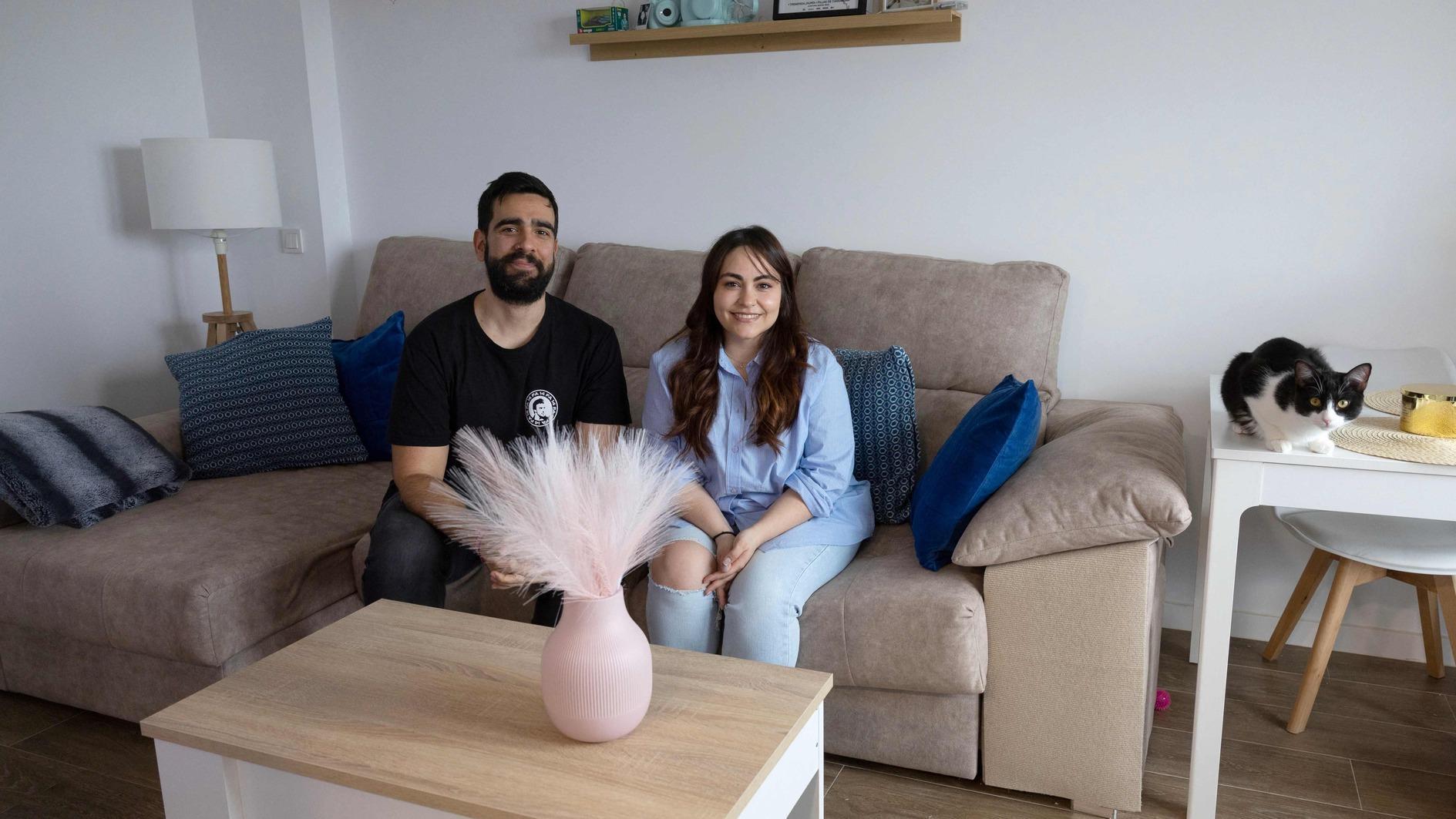
Sergio Encinas (L) and his partner Lorena Pacheco pose in their apartment in Madrid on February 20, 2025.
Lorena Pacheco has hit the jackpot: She won the right in a municipal lottery to rent a two-bedroom apartment and parking spot in one of Madrid's few social housing estates.
Like a growing number of Spaniards, the 30-year-old auxiliary nurse and her partner, Sergio Encinas, have found themselves priced out of the real estate market as rents have soared due to insufficient supply.
For the past two years, the couple searched in vain for a place where they could afford to move in together. In the meantime they have been forced to live separately, each in their parents' homes.
"I felt a great euphoria, followed by a feeling of unreality," Pacheco said, recalling the moment she saw on social media that she had won an apartment in southern Madrid for 550 euros ($575) a month.
Around 44,000 people took part in the draw, which produced 63 other winners.
"Relying on luck to move out of your parents' house is a reality in this country," said Encinas, a 31-year-old salesman who makes about 1,200 euros "in a good month."
"It's quite sad, because you have a job, you work 40 hours a week and you realise that you can't afford to take care of yourself with your salary."
Rents in Madrid have risen by 82 percent in the past decade, according to the property listings website Idealista, mirroring increases in other major Spanish cities.
And social housing is very scarce. Madrid, a city of around 3.4 million people, has just 9,200 low-rent social housing units, one of the lowest figures in the European Union.
Madrid's right-wing city hall has a target of 15,000 social housing units by 2027.
This compares with 260,570 social housing units in Paris, which has a population of 2.1 million, and around 100,000 in Berlin, which has a population of 3.4 million.
Every quarter, Madrid puts 50 to 200 social housing flats up for grabs in a lottery that is open to people who meet income and residency criteria.
More than 80 percent of these flats go to people under 35 and families, Madrid's housing councillor Alvaro Gonzalez told AFP.
"These new tenants will never have to spend more than 30 percent of their monthly income on housing," he added.
But this lottery meets just one per cent of demand.
Only 90,000 new units are built in Spain every year while 120,000 new households are created, according to Idealista figures, leading to a housing shortage that has caused rents to soar.
A boom in holiday lets on platforms such as Airbnb has worsened the housing shortage, sparking large protests across the country and pushing housing to the top of the political agenda.
Socialist Prime Minister Pedro Sanchez has unveiled several measures to try to ease the housing crisis, including higher taxes on holiday lets and the acceleration of social housing construction.
But Idealista spokesman Francisco Inareta warned that some of the government's "coercive measures" had driven landlords out of the long-term rental market, hurting "the young and disadvantaged."
"Landlords are not the problem, they are part of the solution. It is therefore crucial to approach the market pragmatically," he said.